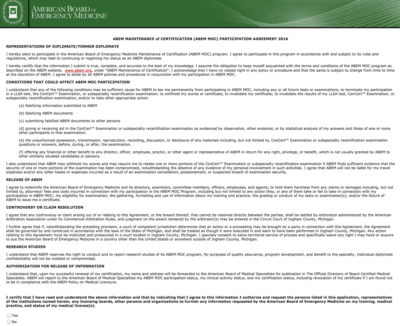A good article on Universal Healthcare, and his problems with Gov. Schwarzenegger’s plan:
…
The root of the problem is that few people face the true cost of medical care. Medicare and Medicaid beneficiaries don’t because taxpayers pay their bills. People with employer-based medical insurance don’t because insurance policies shield them from it. Since they pay only small co-pays when they see a doctor, they don’t ask, “Do I really need that test?” but rather, “Does my insurance cover it?”People who don’t face the full cost of their choices don’t act like cost-conscious consumers. Higher prices result.
With a rational government policy, people would save money for routine medical care and buy insurance for solvency-threatening illness. After all, we don’t buy auto insurance to pay for oil changes and worn-out windshield-wiper blades. But today, people expect medical insurance to cover routine physical exams because someone else seems to pay the premiums.
All this hurts people who buy their own insurance or don’t have it. …
More government isn’t the answer.




Stossel is also the guy who compared the U.S. with India and China and concluded that yes, America is the best country in the world.
I highly doubt he knows much about the health care and delivery system, and highly doubt he knows what it’s like to run into financial difficulties due to exhorbitant healthcare costs.
Well, I’d say his article exhibits better reasoning than your comment, and he seems to have a decent grasp on the subject matter.
Perhaps by some measure, “costs” are going up, but my bottom line says, that even for a greater amount of work, my income is going down. This in spite of the fact that my “fees” continue to go up from time to time, but nobody pays those fees, everyones got some different fee schedule, then comes the fight to get paid after you’ve delivered the service.
So in general I don’t think doctors are especially moved by the consistent media message that health care costs continue to rise.
Yeah, us patients sure have no idea what our insurance carriers do for us. If only carriers would let their members know how much they pay on their behalf. Oh, I dunno – maybe a document, something like an Explanation of Benefits, that was sent to them anytime they used their coverage? I’m sure a document like that wouldn’t make our eyes pop out when we see the astronomical prices clinicians charge for labs that costs maybe ten dollars to produce per unit in kit form.
Oh, and of course I should be asking “Do I really need that test?” when my physician recommends one. Yeah, let’s put a decision like that in my hands when I’m ill. Why the hell did she recommend it if it wasn’t needed? To cover her ass in event of malpractice? Hardly. High costs aren’t the fault of providers either.
Healthcare in this country has big policy and regulation problems and it *absolutely* requires government intervention before we see any improvement. I just have my doubts that it will be implemented properly.
The reciept of a EOB, weeks to months after the money has already been spent doesn’t change patients’ behaviors the day they’re spending the money because they aren’t the ones writing the big checks. And, yes, some tests are ordered as CYA medicine. None of us are happy about it, but that’s reality.
Healthcare is already the most regulated industry in the country, which shows what regulation does. The idea that more regulation will somehow make all this better is absurd; we’ve got all the government intervention we can have short of socialized medicine, so more government isn’t really the answer.
It is certainly good to know that someone is enjoying the current system. As we have heard you say so often, it is working very well — the best of all possible worlds shaped by people and enterprises who have only our best interests at heart.
On a personal note, I just had a thoracotomy. In at noon last Tuesday, out by noon last Friday. I’m sure my experienced surgeon was happy — a new record for him. I’m sure the health system/insurer (Kaiser) was elated too: I could probably have lounged in that new private hospital room of theirs for another 7-10 days without raising an eyebrow. But, boy, did I want to help set that record too. Which is how real medical consumers — most, anyway, except for the Münchhausen patients so beloved of TV doc shows and conservative economists — actually view the desirability of medical attentions. And by God, the system is almost surely still making money off me and my community-rated monthly premium payments, which are a lot more comfortable for me to shell out than the God-knows-how-many thousands the episode would have required me to have been squirreling away if I were to have avoidded selling my house to pay for it in a lump.
Which is why there will be a new healthcare system in this country sooner or later, and if you just lie back and relax a little, GrumpDoc, it might not be as awful as you fear.
Wow, we can talk about Universal healthcare here for a month, but link to John Stossel and the fangs come out.
DOW, perhaps your meds are a little out of whack. Only that could explain your ludicrous series of statements, which frankly make no sense.
And before you wish a new medical system on the country, be sure the devil you don’t know is better than the one you do.
Get well soon, by the way.
What Stossel touches on isn’t really the problem. The problem is we’ve become a society that is irresponsible and greedy.
We want freedom without the costs. We want something for nothing. We want to reap the benefits of something without actually doing anything. We have completely forgotten how to be responsible with our money.
The majority of us already work until May to pay taxes each year. We’re running towards taking more tax money from us to fund a program to help those who need it.
We’ll be taking tax money from those people as well and it doesn’t make sense to me. Taking more of their income means they’ll come up short somewhere else (food? shelter?).
If we want the freedom to do what we choose with our money then we need to be responsible. We set money aside for electricity bills and Starbucks. Why does medical care take a back burner? We will all need it at some point in our lives. If we actually saved for rainy days instead of purchasing shiny new toys we can’t really afford, we wouldn’t have this problem.
With as many cars that are on the road with as many wrecks and lawsuits that go on, doesn’t anyone ever ask why car insurance is so much more affordable than health insurance?
Grunt Doc – How do you propose solving the problem of Insurers refusing to cover customers for things like cancer of the appendix, or refusing to cover secondary problems that the initial physician missed? Surely insurance customers who pay their premiums are entitled to coverage and treatment that doesn’t require the services of an attorney.
The problem with Stossel’s statement is that if you only see physicians for life-threatening illnesses, then that’s not really healthcare, it’s just helping ease your transition to death. If I know I have High blood pressure, why should I not see a cardiologist? I should feel guilty that my employer-provided insurance is so good that I don’t really “see” the high cost of healthcare, and am driving up the whole country’s costs by seeing different specialists? When do I earn the right to see the doctor without inflating healthcare costs? Is preventive medicine not allowed?
I don’t buy the argument that all the indigents in the ED whose complaints require CT’s and MRI’s are the ones increasing the cost of healthcare. They contribute for sure, but I think your cynicism (which is especially evident in your dismissive responses to your readers) and political allegiance seem to be compromising your ability to objectively view the counter-argument.
Your last non-point first: my political allegiance is to my profession, my patients and my country. The party that’s doing all of them a service at the same time gets my vote. Although I’m politically little l libertarian, if you really want to know.
I think the absolute lack of ‘what does this really cost’ does drive up the cost of healthcare. For example, there’s no need to see a cardiologist for the vast majority of hypertension management; internists were doing that long before cardiologists came along, but since you have good insuance, why not see a subspecialist for your hypertension? It’s not money from your pocket, right?
IF we can get this to happen, at the same time we’d have to get rid of a lot of the folderol that says I can’t tell you what it’ll cost, uder penalty of law. See, I’d be talking you out of getting whatever test I think you need, due to the absurd charges that accompany medicine these days.
And, IF we can get this to happen, we’d start backing into some kind of a market for healthcare. When I go into a hospital I have literally no idea what any service costs, and it’s terrifically hard to find out. That’s just wrong. If we’re spending money (and we all are, like crazy), we should be able to compare costs, results. etc. (There are a heck of a lot of details in there, and comparing quality has backfired more than once: docs stop doing more risky procedures so they don’t become ‘quality outliers’). Should auto insurance get your oil changed or your brakes done? I’d argue the same for routine health care.
I am dismissive of commenters whose gripe with the argument is ‘Stossel is an idiot…’, and rightly so. Want to argue with the premise? Please do, but dismissing it because it’s Stossel isn’t a good approach.
I’m not carrying any health insurance company water on this blog, by the way. If an insurance company behaves badly they should get called on it, and should have to deal with it.
“I am dismissive of commenters whose gripe with the argument is ‘Stossel is an idiot…’, and rightly so. Want to argue with the premise? Please do, but dismissing it because it’s Stossel isn’t a good approach. ”
Stossel didn’t offer any solutions, nor did he deal with the fact that the theory of taking government out of medicine means that we have to replace it with SOMETHING. The govt., via VA and Medicare, already pays in excess of 50% of all healthcare expenditures.
Stossel is good for a soundbite, but not much else. And many of his bites don’t hold up to scrutiny.
Grunt Doc – thanks for the in-depth response.
You work as a doctor and think that comparing humans with cars is a good idea?